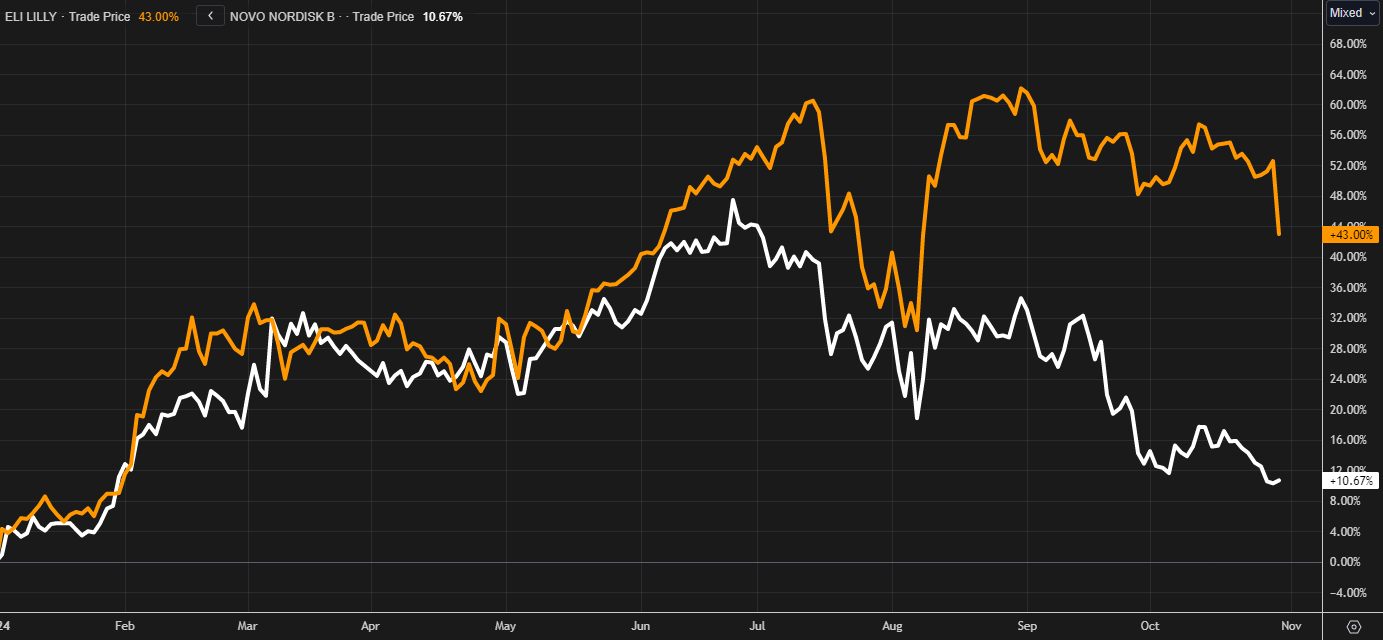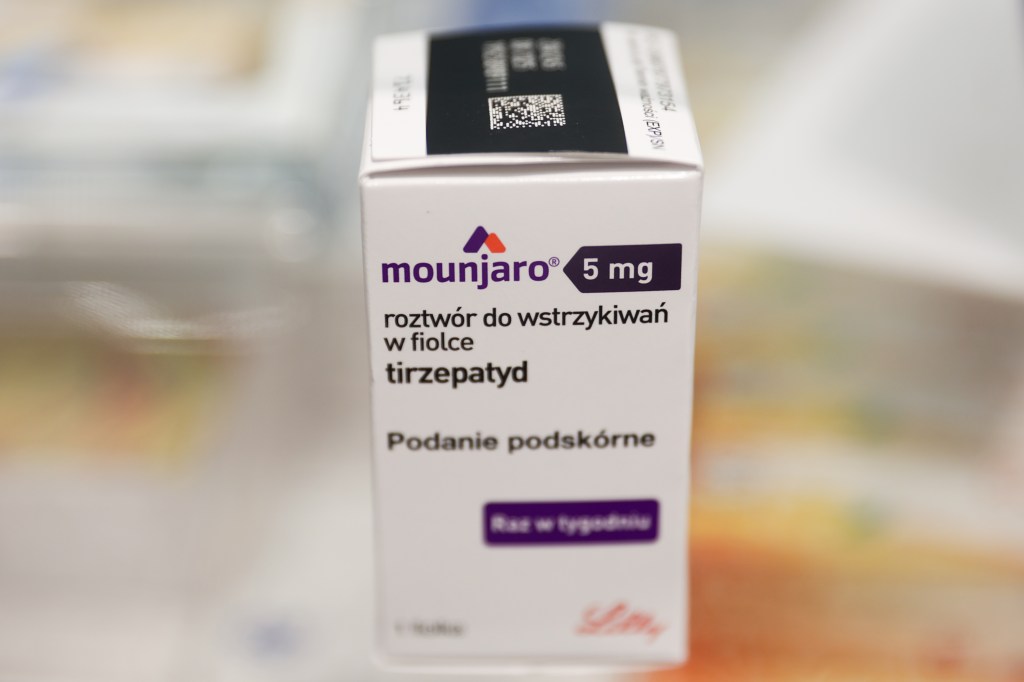After 🏃♂️ ahead like crazy since the weight-loss drug craze began in 2022, Eli Lilly’s now finding itself, well, a little winded. Sure, it’s still up 230%, but that’s yesterday’s high.
Mounjaro’s been Eli Lilly’s golden ticket, and it did double sales to $3.1 billion even as all eyes began turning to the new kid: Zepbound, the drugmaker’s cheaper weight-loss hopeful. But sales from both drugs have missed expectations.
Slim pickings
- Eli Lilly turned a profit this quarter at $1.18 per share, flipping last year’s loss, but still missed the mark with Wall Street hoping for $1.47 per share. It’s market cap stands at $700 million.
- Revenue was up 20% to $11.4 billion but shy of a $12.1 billion forecast.
- More bad news: Eli Lilly also trimmed the higher end of its 2024 revenue outlook for 2024 to $46 billion from $46.6 billion.
- Not a great look for a stock trading at a hefty 39 times forward earnings.
Did the market get ahead of itself? Probably. Its weight-loss drugs are still raking in sales (though slowing a bit from the last quarter) but for sky-high stocks like $LLY, the bar’s set way up there. Moderately “disappointing” earnings have sent its stock off a cliff.
Market’s got zero chill if you miss the mark.

Pick or pass?
The silver lining? At least it’s out-shining Ozempic-maker and arch-rival Novo Nordisk, which has been struggling since its own earnings faceplant.
Analysts are all-in on Eli Lilly: every single one says “buy” or “hold,” with a 12-month price target hinting at a juicy 20% upside to $1,016. But here’s the rub: it’s trading at a 40% premium to Novo.
Novo’s 12-month target hints at a solid 24% upside. Looking for a less pricey weight-loss play? It might just be your ticket.
And it’s not just Eli Lilly and Novo. The weight-loss drug market’s set to soar to $200 billion by 2031. And while these two have the early lead, it’s about to get crowded: at least 16 new players are lining up for entry.






